Fellows 2023-24
Together with our 2023-24 partner, the Center for Jewish History in New York City, we are proud to present the inaugural fellows of the Institute for Advanced Israel Studies, 13 distinguished scholars who teach and research at institutions in Israel, the Netherlands, and the US.
Democracy and its Alternatives: Genealogies of Israeli Political Thought
The theme for the 2023-24 academic year was "Democracy and its Alternatives: Genealogies of Israeli Political Thought," which focused on the histories and philosophies of Israeli politics and political thought, beginning in the decades before the establishment of the state. The fellows worked to unearth the many strands and global contexts of Israeli political ideologies, tracing their genealogies, and demonstrating the significance of these histories for contemporary debates.
Aligning with this theme, fellows examined aspects of Israeli democracy, ranging from Israeli Palestinian perspectives, the influence of constitutionalism on Zionist thought, the recent debate on Israel’s judicial reforms, as well as how the October 7 Hamas attacks have affected the nature of democracy in the region.
Inaugural Conference
The inaugural Institute for Advanced Israel Studies conference, Democracy and its Alternatives: The Origins of Israel's Current Crises, took place April 7 - 8, 2024. Visit the conference page for program information, recordings, and
Essays
As part of the fellowship, the fellows wrote essays about their research. Here is a selection:
- Thwarted Citizens: The Mandatory Erasure of the Legacy of Ottoman Imperial Citizenship, by Michelle U. Campos
- The Mandate Origins of Israeli Democracy, by Nimrod Lin
- Time’s Up for Israel’s Permanent Constitutional Crisis, by Dahlia Scheindlin
Meet the Fellows

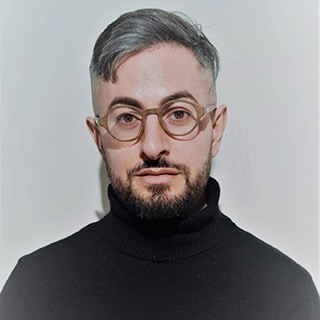
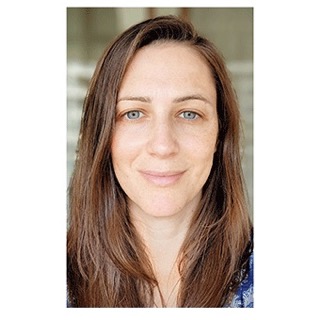 Lihi Ben Shitrit is the incoming director of the Taub Center for Israel Studies and the Henry Taub Associate Professor of Israel Studies at The Skirball Department of Hebrew and Judaic Studies of New York University. She is also an associate professor at the School of Public and International Affairs, University of Georgia, Athens. Her research focuses on the intersection of gender, religion, and politics in the Middle East. She is the author of "Righteous Transgressions: Women’s Activism on the Israeli and Palestinian Religious Right" (Princeton University Press, 2015) and "Women and the Holy City: The Struggle over Jerusalem’s Sacred Space" (Cambridge University Press, 2020), as well as numerous articles and book chapters. Ben Shitrit’s work has been supported by various fellowships including from Harvard Law School’s Program on Law and Society in the Muslim World (2023), Luce/ACLS Program in Religion, Journalism & International Affairs fellowship (2019-2020), Harvard Kennedy School’s Middle East Initiative (2018-2019), University of Pennsylvania’s Katz Center for Advanced Judaic Studies (2017), and Harvard Divinity School’s Women’s Studies in Religion Program (2013-2014). She holds a PhD, MPhil, and MA in political science from Yale University, and a BA in Near Eastern Studies from Princeton University.
Lihi Ben Shitrit is the incoming director of the Taub Center for Israel Studies and the Henry Taub Associate Professor of Israel Studies at The Skirball Department of Hebrew and Judaic Studies of New York University. She is also an associate professor at the School of Public and International Affairs, University of Georgia, Athens. Her research focuses on the intersection of gender, religion, and politics in the Middle East. She is the author of "Righteous Transgressions: Women’s Activism on the Israeli and Palestinian Religious Right" (Princeton University Press, 2015) and "Women and the Holy City: The Struggle over Jerusalem’s Sacred Space" (Cambridge University Press, 2020), as well as numerous articles and book chapters. Ben Shitrit’s work has been supported by various fellowships including from Harvard Law School’s Program on Law and Society in the Muslim World (2023), Luce/ACLS Program in Religion, Journalism & International Affairs fellowship (2019-2020), Harvard Kennedy School’s Middle East Initiative (2018-2019), University of Pennsylvania’s Katz Center for Advanced Judaic Studies (2017), and Harvard Divinity School’s Women’s Studies in Religion Program (2013-2014). She holds a PhD, MPhil, and MA in political science from Yale University, and a BA in Near Eastern Studies from Princeton University.
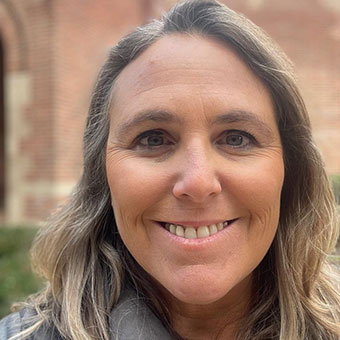
Berda’s research, teaching and public speaking in the tradition of law and society scholarship, is deeply engaged with historical legacies and contemporary politics. Her research focuses on the way bureaucracy shapes politics, and how mundane and routine practices of the state determine citizenship, sovereignty and social power. She is the author of three books and articles on bureaucracy and the state, emergency powers, and sociology of empires: "The bureaucracy of the Occupation" (Van Leer 2012), "Living Emergency: Israel Permit Regime in the West Bank" (Stanford University Press, 2017), "Colonial Bureaucracy and Contemporary Citizenship: Legacies of race and emergency in the British Empire" (Cambridge University Press, 2023).
Berda is highly engaged in public debate and civil society on and in Israel/Palestine. She’s currently engaged in research projects on the construction of loyalty of civil servants in Israel and India; the use of emergency laws to shape political economy of colonial states; how colonial legacies of administration shaped contemporary homeland security practices in postcolonial states; and legal histories of Jewish migration from the Maghreb. Berda was a practicing Human Rights lawyer, representing in military, district, and Supreme courts in Israel. Berda received a PhD from Princeton University; an MA from Tel Aviv University and an LLB (undergraduate law degree) from Hebrew University's Faculty of Law.
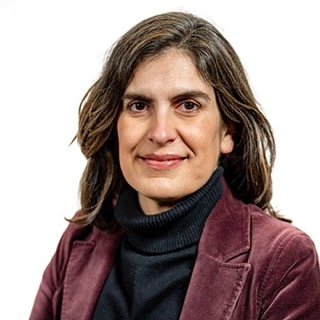 Michelle Campos is Associate Professor of Jewish Studies and History at Pennsylvania State University. The author of the award-winning "Ottoman Brothers: Muslims, Christians, and Jews in Early Twentieth Century Palestine," she is currently completing a book on neighborhood life and intercommunal relations in 19th and early 20th century Jerusalem. Campos is also co-editing the translated memoirs of a Maghrebi Jewish public figure in Palestine and is co-directing an National Endowment for the Humanities collaborative research grant, “Reimagining Jewish Life in the Modern Middle East.”
Michelle Campos is Associate Professor of Jewish Studies and History at Pennsylvania State University. The author of the award-winning "Ottoman Brothers: Muslims, Christians, and Jews in Early Twentieth Century Palestine," she is currently completing a book on neighborhood life and intercommunal relations in 19th and early 20th century Jerusalem. Campos is also co-editing the translated memoirs of a Maghrebi Jewish public figure in Palestine and is co-directing an National Endowment for the Humanities collaborative research grant, “Reimagining Jewish Life in the Modern Middle East.”
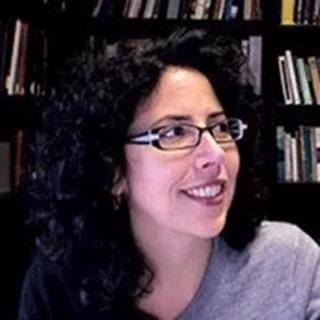 Julie E. Cooper is a senior lecturer (the Israeli equivalent to an associate professor) in the Political Science Department at Tel Aviv University. Her research interests include the history of political theory; early modern political theory (especially Hobbes and Spinoza); secularism and secularization; Jewish political thought; and modern Jewish thought. She is the author of "Secular Powers: Humility in Modern Political Thought" (Chicago, 2013). Her work has appeared in journals including "Review of Politics, The Historical Journal, Political Theory, and Jewish Quarterly Review." She is currently working on a book project, tentatively entitled "Politics Without Sovereignty? Exile, State, and Territory in Jewish Thought," that examines modern attempts to reimagine and rehabilitate Judaism’s national and political dimensions.
Julie E. Cooper is a senior lecturer (the Israeli equivalent to an associate professor) in the Political Science Department at Tel Aviv University. Her research interests include the history of political theory; early modern political theory (especially Hobbes and Spinoza); secularism and secularization; Jewish political thought; and modern Jewish thought. She is the author of "Secular Powers: Humility in Modern Political Thought" (Chicago, 2013). Her work has appeared in journals including "Review of Politics, The Historical Journal, Political Theory, and Jewish Quarterly Review." She is currently working on a book project, tentatively entitled "Politics Without Sovereignty? Exile, State, and Territory in Jewish Thought," that examines modern attempts to reimagine and rehabilitate Judaism’s national and political dimensions.
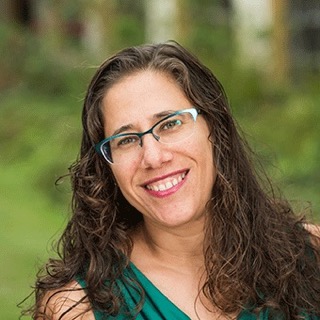 Leena Dallasheh is a historian. Her research focuses on the history of Palestine/Israel, with a particular interest in Palestinians who became citizens of Israel in 1948. She is currently finishing a manuscript, "Living Through the Nakba: Nazareth's Palestinians in the Transition from British Mandate to Israel," on the social and political history of Nazareth in the transition between the British Mandate and Israel. She has published articles and reviews in "Journal of Palestine Studies," "International Journal of Middle East Studies," "The American Historical Review," and edited collections. She has also been engaged in academic and public conversations on Palestine/Israel.
Leena Dallasheh is a historian. Her research focuses on the history of Palestine/Israel, with a particular interest in Palestinians who became citizens of Israel in 1948. She is currently finishing a manuscript, "Living Through the Nakba: Nazareth's Palestinians in the Transition from British Mandate to Israel," on the social and political history of Nazareth in the transition between the British Mandate and Israel. She has published articles and reviews in "Journal of Palestine Studies," "International Journal of Middle East Studies," "The American Historical Review," and edited collections. She has also been engaged in academic and public conversations on Palestine/Israel.
 Nimrod Lin received a Ph.D. in history from the University of Toronto in 2018. His research focuses on Zionist demographic and political thought during the British Mandate. He is the managing editor of the "Journal of Israeli History" and the editor-in-chief of "Israel."
Nimrod Lin received a Ph.D. in history from the University of Toronto in 2018. His research focuses on Zionist demographic and political thought during the British Mandate. He is the managing editor of the "Journal of Israeli History" and the editor-in-chief of "Israel."

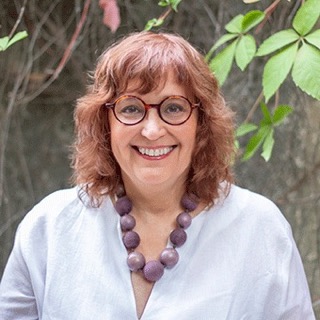 Professor Orit Rozin is the academic director of the Dan David Society of Fellows. She teaches at the Department of Jewish History, Faculty of Humanities, and is the co-editor of the "Journal of Israeli History."
Professor Orit Rozin is the academic director of the Dan David Society of Fellows. She teaches at the Department of Jewish History, Faculty of Humanities, and is the co-editor of the "Journal of Israeli History."

Dahlia holds a PhD in political science from Tel Aviv University and has taught at Ben Gurion University of the Negev, Tel Aviv University, the Jezreel Valley College, and Eastern Mediterranean University in Cyprus. She is a co-founder at +972 Magazine and is a member of the Advisory Board of Jewish Currents magazine. Dahlia is currently a fellow at The Century Foundation; she co-hosts The Tel Aviv Review podcast and in 2021 co-hosted the Election Overdose podcast at Haaretz newspaper where she now has a regular column; she is also a regular commentator on global affairs for the BBC television program Context. Her work has appeared in the New York Times, the Washington Post, Foreign Affairs, Foreign Policy, Newsweek, Time, The Guardian/Observer, Dissent, Democracy: A Journal of Ideas, The Washington Quarterly, among other venues. Her book, "The Crooked Timber of Democracy in Israel: Promise Unfulfilled," will be published in September 2023.
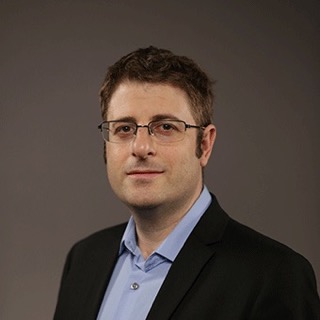 Aviram Shahal received his doctoral degree (Doctor of Juridical Science) from the University of Michigan Law School. He is currently a visiting scholar at the Center of Jewish Studies at Harvard University. Shahal has LLM (Master of Laws) degrees from Michigan Law School and Tel Aviv University's Faculty of Law. He received his LLB (Bachelor of Laws) degree from the Hebrew University of Jerusalem. Shahal’s areas of interest include legal and constitutional history, comparative law, law and literature, history of Zionism and the impact of demographic changes.
Aviram Shahal received his doctoral degree (Doctor of Juridical Science) from the University of Michigan Law School. He is currently a visiting scholar at the Center of Jewish Studies at Harvard University. Shahal has LLM (Master of Laws) degrees from Michigan Law School and Tel Aviv University's Faculty of Law. He received his LLB (Bachelor of Laws) degree from the Hebrew University of Jerusalem. Shahal’s areas of interest include legal and constitutional history, comparative law, law and literature, history of Zionism and the impact of demographic changes.
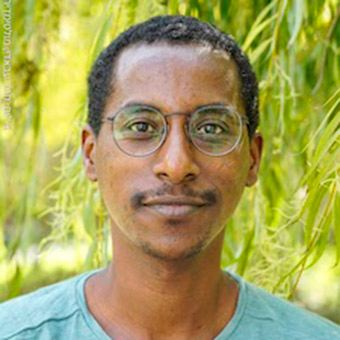 Adane Zawdu Gebyanesh is a cultural sociologist. His research focuses on how categories of difference structure our social and political experience, with a particular interest in ethnic and racial categorization. He received his PhD from the sociology department at the University of Connecticut. In his dissertation, titled “When Rituals Migrate: A Study of The Relationships Between Collaborative Cultural Practices and Social Ties Among Ethiopian Immigrants in Israel,” he explores how individuals and communities sustain resources and skills in the face of the precarious conditions of migration.
Adane Zawdu Gebyanesh is a cultural sociologist. His research focuses on how categories of difference structure our social and political experience, with a particular interest in ethnic and racial categorization. He received his PhD from the sociology department at the University of Connecticut. In his dissertation, titled “When Rituals Migrate: A Study of The Relationships Between Collaborative Cultural Practices and Social Ties Among Ethiopian Immigrants in Israel,” he explores how individuals and communities sustain resources and skills in the face of the precarious conditions of migration.
During 2020-2021 he was the Jonathan Shapiro postdoctoral fellow in the Department of Sociology and Anthropology at Tel Aviv University. In 2021 he became a postdoctoral research fellow at the Polonsky Academy for Advanced Study in the Humanities and Social Sciences at The Van Leer Jerusalem Institute. During his Polonsky Fellowship, he is working on a project titled "The Changing Structure of Difference: The Working of Ethnic and Racial Categories Among Ethiopian Migrants in Israel, 1977-2020." The project examines the changing relations between ethnic culture and skin color among Ethiopian Israelis, from the early years of migration to present day.